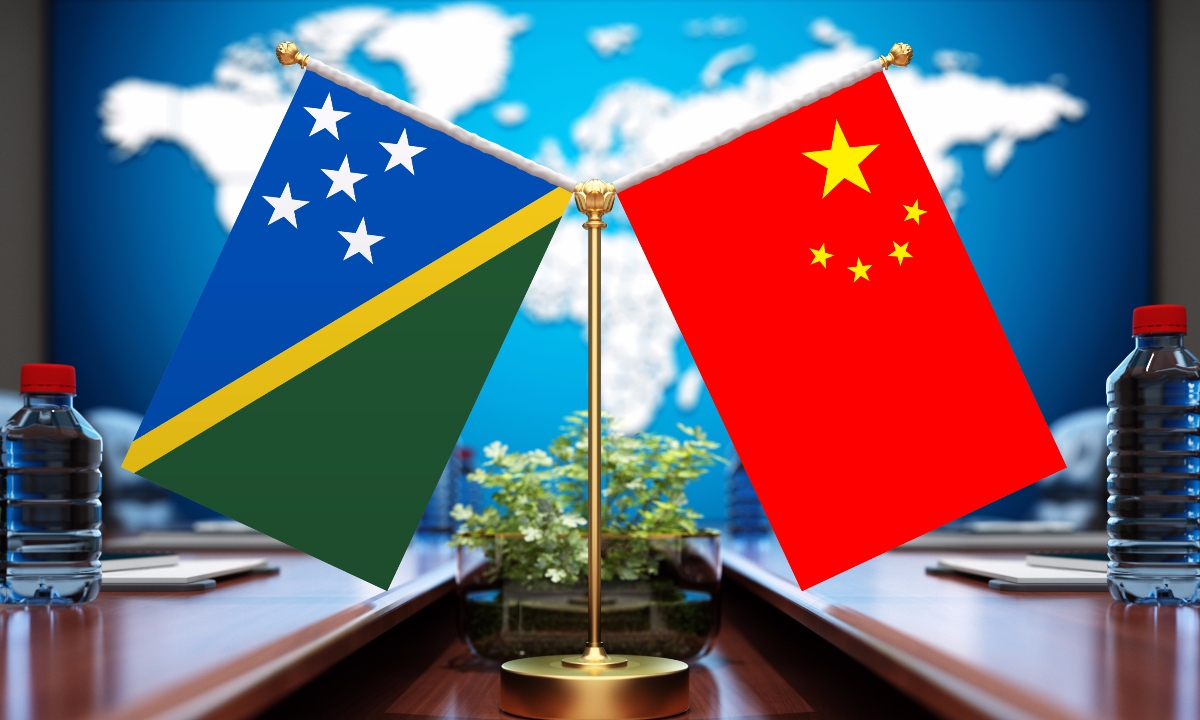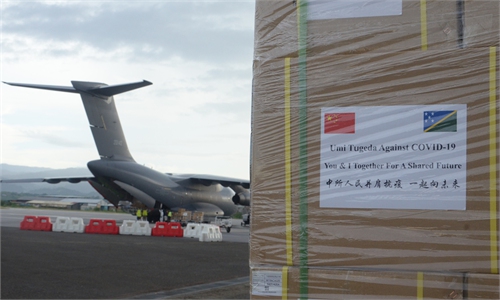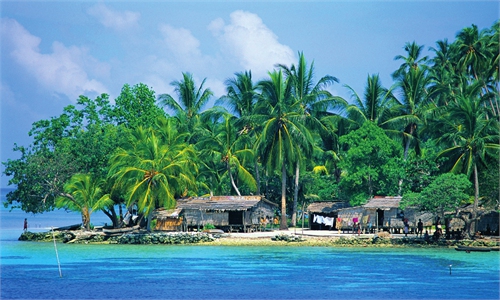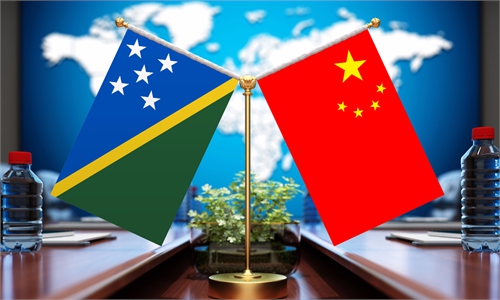
Photo: VCG
Ever since the leak of a draft security pact inked between China and the Solomon Islands, some Western countries have hyped the issue with baseless speculations on China's so-called military buildup in the Pacific region, which, however, only shows their abnormal mentality.In a manifestation of the Western paranoid over China's security cooperation will be a rare planned visit by the White House's top Asia-Pacific security official Kurt Campbell to the Solomon Islands this month, as reported by the Financial Times on Saturday.
Observers believe that the purpose of Campbell's visit is to prevent the Solomon Islands from officially approving the pact, as the US and Australia have little stomach for the cooperative pact.
While some in the West allege that China's cooperation with South Pacific island nations will "increase tension" in the region, the irony is that the US, the UK have carried out much more military cooperation with Australia, including their signing the notorious AUKUS deal that will see Washington and London assist Canberra to obtain nuclear-powered submarines. If anything, they have drastically escalated the risk of nuclear proliferation in the region, which is the real threat to regional security and stability.
The fundamental reason the US, Australia and their allies are now playing up the Solomon Islands' security pact with China as a threat is because they have always deemed Pacific Island countries as their "backyard," treating them with hegemonic and colonial mentality.
But it should be noted that the West has neither the right nor the reason to interfere in the foreign affairs of the Solomon Islands. As an independent sovereign state, the South Pacific island country has its own right to decide what it needs and what kind of cooperation it wants to carry out with any other country.
In fact, the Solomon Islands and other South Pacific island nations have no intention of becoming the strategic pivot in some Western countries' geopolitical games. Instead, they prefer to become a stage for international cooperation. With a weak economic base, most South Pacific island countries are facing pressing development challenges, especially in the post-pandemic era, and they have not yet overcome coronavirus-induced tumult. Their realistic needs for peace and development should be recognized and met through appropriate economic and security cooperation with countries like China. And the efforts should not be skewed as regional militarization.
There is no denying that South Pacific island countries have received substantial Western aid is the past years, but this aids were mostly focused on investing in diplomatic influence, rather than promoting local social and economic development. By only seeing the strategic significance of the region while ignoring their development needs, the West has laid bare their arrogance toward the South Pacific island countries.
In sharp contrast, since the establishment of diplomatic relations between China and the Solomon Islands, the two countries have rapidly promoted mutually beneficial cooperation through means like project assistance, investment and trade under the Belt and Road Initiative framework.
It is no secret that the US has been trying to rope in allies to establish a military clique aimed at piling up pressure on China. While accusing China's reasonable security cooperation with regional countries, the US has been engaging in multiple military deployments in many places to contain China, which is another vivid display of Washington's double standard practice.
China's efforts of strengthening ties with the South Pacific island countries through diversified cooperation to become a welcome partner of the region is the best counterbalance to the US' obsession to build up its global dominance and hegemony, including in Asia-Pacific.



